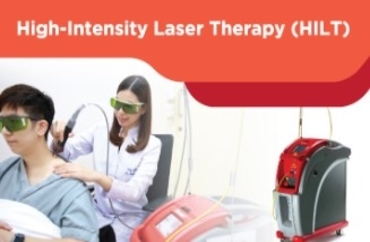공지사항
| Joseph's Stalin's Secret Guide To Rehab In Chiang Mai | Kazuko Barrios | 24-01-24 05:19 |
|
Introduction:
Dual Diagnosis is the co-occurrence of a mental health disorder and a substance usage disorder Rehab In Chiang Mai a person. These two problems frequently exist simultaneously and can complicate the procedure process. This report is designed to offer an extensive summary of Dual Diagnosis, including its prevalence, threat elements, affect people, and offered treatments.  Prevalence and Risk Aspects: Prevalence and Risk Aspects:Scientific studies suggest that Dual Diagnosis is common, with a significant percentage of people experiencing both psychological state and substance use disorders. Analysis shows that approximately 50% of an individual diagnosed with a severe emotional illness have a substance usage disorder. Additionally, those with compound use conditions may develop a mental wellness disorder compared to those without such problems.  A number of risk facets donate to the development of Dual Diagnosis, including genetic predisposition, ecological elements, trauma, and ones own personal record with mental health or drug abuse. It is critical to deal with these threat elements during assessment and treatment procedure assure effective maintain people with Dual Diagnosis. A number of risk facets donate to the development of Dual Diagnosis, including genetic predisposition, ecological elements, trauma, and ones own personal record with mental health or drug abuse. It is critical to deal with these threat elements during assessment and treatment procedure assure effective maintain people with Dual Diagnosis.Effect on people: The coexistence of mental health and substance usage problems can notably impact an individual's total wellbeing and quality of life. Twin Diagnosis usually results in complex and intertwined challenges, eg enhanced rates of hospitalizations, greater committing suicide prices, poor therapy effects, homelessness, and appropriate problems. Additionally, they may face difficulties in their relationships, work, and overall social performance, which more exacerbates their particular situation. Treatment Options: Effortlessly managing twin Diagnosis calls for an integrated treatment approach that addresses the mental health and substance usage problems simultaneously. Treatment options may include: 1. drugs: Psychotropic medicines often helps alleviate symptoms of mental health disorders. Also, medicines created specifically to deal with compound use problems, such as for example opioid replacement treatment or anti-craving medications, can be recommended. 2. Psychotherapy: different types of treatment, including Cognitive Behavioral treatment (CBT), Dialectical Behavior Therapy (DBT), and Motivational Interviewing (MI), are employed to address underlying problems and teach coping abilities. 3. Support Groups: doing organizations, including Alcoholics Anonymous (AA), Narcotics Anonymous (NA), or Dual Recovery Anonymous (DRA), can provide people with a supportive neighborhood and support in maintaining long-term data recovery. 4. Integrated Treatment Programs: These programs offer comprehensive and coordinated attention by a multidisciplinary group that features mental health experts, addiction specialists, along with other medical providers. Integrated programs guarantee holistic treatment and help for individuals with Dual Diagnosis. Conclusion: Dual Diagnosis is a complex condition that requires specialized ways to effectively address both psychological state and substance usage problems. By comprehending the prevalence, risk elements, and influence of twin Diagnosis, medical professionals can better recognize and develop proper treatment plans for people struggling with this problem. Promoting analysis, increasing understanding, and expanding access to incorporated treatment programs are necessary tips towards enhancing effects for those of you with Dual Diagnosis.  |
||
| 이전글 A Deadly Mistake Uncovered on Sober House Chiang Mai And How to Avoid It |
||
| 다음글 A Beautifully Refreshing Perspective On Detox Programs In Chiang Mai |
||
댓글목록
등록된 댓글이 없습니다.







